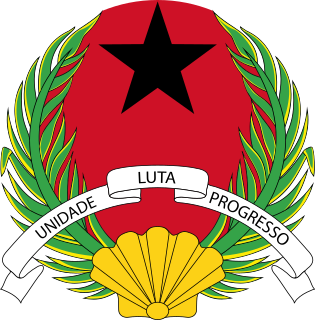 W
WCorruption in Guinea-Bissau is among the highest levels in the world. In Transparency International's Corruption Perceptions Index for 2014, it was ranked 161st out of 175 countries. The previous year, it was at 163rd out of 177 countries. This marked a decline from its 2012 ranking, 150th out of 174 countries. In 2013, Guinea-Bissau scored below the averages for both Africa and West Africa on the Mo Ibrahim Foundation’s Index of African Governance.
 W
WThis is a list of foreign ministers of Guinea-Bissau.1973–1982: Victor Saúde Maria 1982–1983: Samba Lamine Mané 1983–1984: Fidélis Cabral d'Almada 1984–1992: Júlio Semedo 1992–1995: Bernardino Cardoso 1995–1996: Ansumane Mané 1996–1999: Fernando Delfim da Silva 1999: Hilia Barber 1999–2000: José Pereira Baptista 2000–2001: Mamadú Iaia Djaló 2001: Faustino Imbali 2001: Antonieta Rosa Gomes 2001: Malam Mané 2001–2002: Filomena Mascarenhas Tipote 2002–2003: Joãozinho Vieira Có 2003: Fatumata Djau Baldé 2003–2004: João José Monteiro 2004–2005: Soares Sambú 2005–2007: António Isaac Monteiro 2007–2009: Maria da Conceição Nobre Cabral 2009: Adiato Djaló Nandigna 2009–2011: Adelino Mano Quetá 2011–2012: Mamadu Saliu Djaló Pires 2012–2013: Faustino Imbali 2013–2014: Fernando Delfim da Silva 2014–2015: Mário Lopes da Rosa 2015: Rui Dia de Sousa 2015–2016: Artur Silva 2016–2016: Soares Sambú 2016–2018: Jorge Malú 2018–2019: João Ribeiro Butiam Có 2019–2020: Suzi Barbosa 2019: Aristides Ocante Da Silva 2020: Ruth Monteiro 2020–present: Suzi Barbosa
 W
WThe Republic of Guinea-Bissau follows a nonaligned foreign policy and seeks friendly and cooperative relations with a wide variety of states and organizations. France, Portugal, Angola, Brazil, Egypt, Nigeria, Libya, Cuba, the Palestine Liberation Organization, and Russia have diplomatic offices in Bissau.
 W
WThis article lists the presidents of Guinea-Bissau, since the establishment of the office of President in 1973.
 W
WThis article lists the prime ministers of Guinea-Bissau, since the establishment of the office of Prime Minister in 1973.
 W
WThe Revolutionary Armed Forces of the People or FARP are the national military of Guinea-Bissau. They consist of an Army, Navy, Air Force and paramilitary forces. A 2008 United Nations Development Programme census estimated that there were around 4,000 personnel in the Armed Forces. An earlier CIA World Fact Book figure was 9,250. The World Fact Book also estimated military expenditure as $9.46 million, and military spending as a percentage of GDP as 3.1%.
 W
WThe unicameral National People's Assembly is Guinea-Bissau's legislative body.
 W
WThe vice president of Guinea-Bissau is a former political position in Guinea-Bissau. The position was established in September 1973, and abolished in December 1991.